San Francisco
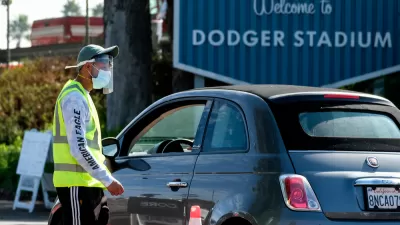
'By the Numbers': California Shows How to Reopen Safely
Unlike other states that lifted restrictions statewide after coronavirus cases plummeted, California replaced its regional stay-home order with a county-based blueprint, permitting counties to advance based on performance in three health metrics.
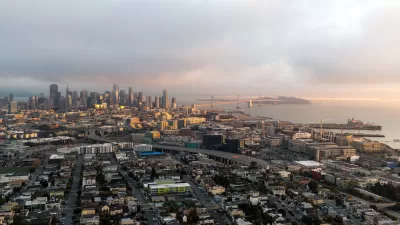
Where the Ground Sinks Under the Weight of Development
New research documents how the weight of buildings causes the ground to sink underneath developments in the San Francisco Bay Area.
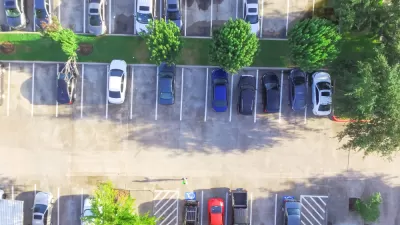
Parking Induces Driving, Study Says
New research published in the Urban Studies journal does the difficult work of connecting the dots between parking and driving.

San Francisco's Housing Crisis is Deepening, Despite Falling Rents
Despite the purported exodus of untethered Silicon Valley workers from the Bay Area, rents in the city are still the highest in the United States.

Los Angeles Mayor Blames COVID Outbreak on Density
Appearing on a Sunday news show, Mayor Eric Garcetti noted that the Los Angeles metropolitan region is the nation's densest and one of two primary reasons why "we're seeing a person every six seconds contract COVID-19 here in Los Angeles County."

Arts-Oriented Land Trusts Preserve Affordable Cultural Spaces
A community land trust in San Francisco is buying up properties with the goal of preserving affordable spaces for arts and culture.
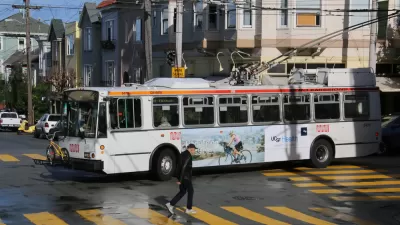
The Transit Catastrophe Continues: San Francisco, D.C. Forecast Service Cuts, Layoffs
Advocates have been waiting for the other shoe to drop as transit agencies deal with cratered revenues during the pandemic without support from Congress.

San Francisco Bans Natural Gas Use in New Development
San Francisco becomes the 40th city statewide to legislate a ban on natural gas in development projects.

An American Urban Coronavirus Success Story
The City by the Bay has joined eight largely rural counties in California by advancing last Tuesday to the least restrictive tier of the state's new reopening criteria by reducing coronavirus transmission to nearly New York levels.
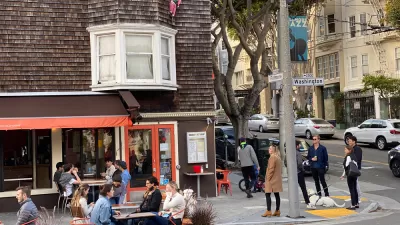
The Metrics of Outdoor Dining
Outdoor dining programs are proving popular in cities all over the United States, as a lifeline for both restaurants and residents seeking some social normalcy. Data from San Francisco reveal the numbers behind the phenomenon.

A Bipartisan Case for Mass Timber—Combating Wildfires and Developing Local Economies
What’s good for our forests and planet can also be good for our jobs, communities, and the economy. That’s why we’re writing this together—an ex-Democratic political operative and an ex-Republican staff member who want to see mass timber flourish.
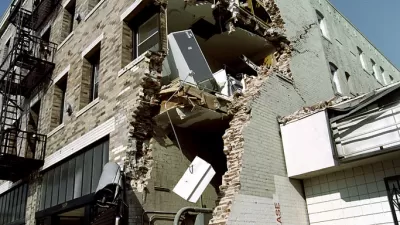
Earthquake Preparation for Resilience
A look at San Francisco's building resilience plan illustrates the pertinent need to include earthquake preparedness in resiliency planning.
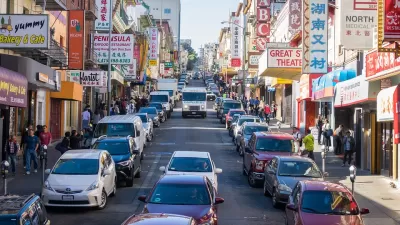
Congestion Pricing Scheme Up for Discussion in San Francisco
The public is providing feedback for the idea of a congestion pricing scheme that could charge as much as $12 to drive into Downtown San Francisco.
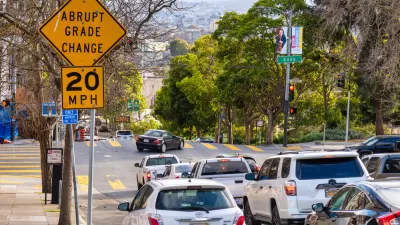
The Causes of California's Development Malaise
A spate of recent articles has taken a critical look at the regulatory obstacles to a progrssive planning vision in the state of California.

Wildfire Smoke Affecting Communities Across the Country
Wildfires in California and Colorado are spewing out smoke that is traveling to other parts of the country. The health effects of the dirty air are substantial, and they could last long after the fires are out.
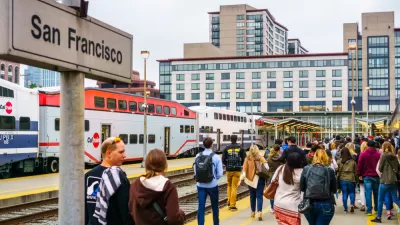
Compromise Reached to Save Caltrain
The saga of the three-county sales tax upon which the future of Caltrain depends is now in the hands of voters.

The Cost of Sea-Level Rise Measured in Tens of Billions in California
A new report summarizes the impact rising sea levels would have on California residents, businesses, and infrastructure. The effects would be catastrophic for the San Francisco Bay Area.
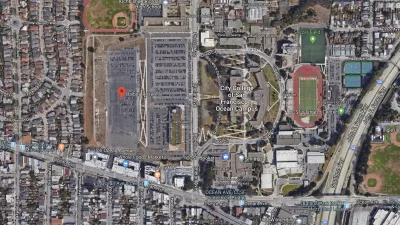
After Decades of Failure, 1,000-Plus Homes Coming to the Balboa Reservoir in San Francisco
Four developers tried, and four developers failed, until the San Francisco Board of Supervisors changed the story in August 2020.

Can Planners Advance Environmental Justice When Rebuilding Existing Locally Unwanted Land Uses?
Miriam Solis, of the University of Texas at Austin, writes about a recent article she authored in the Journal of Planning Education and Research.
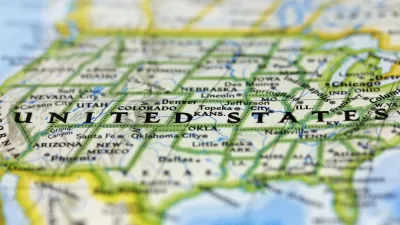
One U.S. State Boasts 33% Fewer Carbon Emissions Per Capita Than Any Other
California, the largest state by population in the United States, is responsible for 33% fewer carbon emissions per capita than any other state, according to a new study published in the Proceedings of the National Academy of Sciences.
Pagination
Urban Design for Planners 1: Software Tools
This six-course series explores essential urban design concepts using open source software and equips planners with the tools they need to participate fully in the urban design process.
Planning for Universal Design
Learn the tools for implementing Universal Design in planning regulations.
Caltrans
Smith Gee Studio
Institute for Housing and Urban Development Studies (IHS)
City of Grandview
Harvard GSD Executive Education
Toledo-Lucas County Plan Commissions
Salt Lake City
NYU Wagner Graduate School of Public Service


































